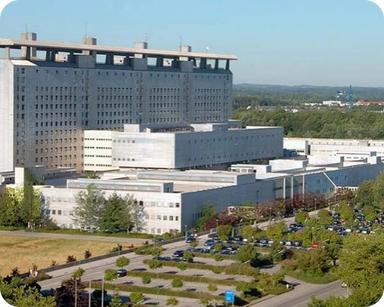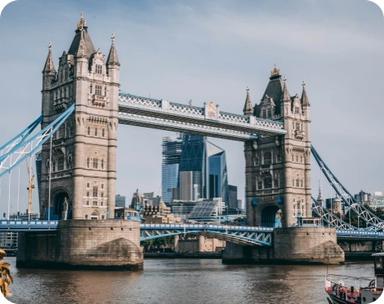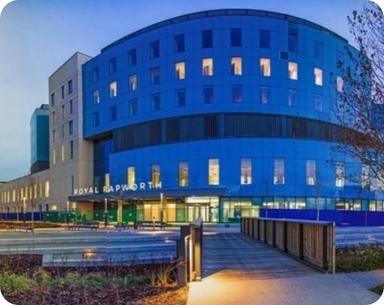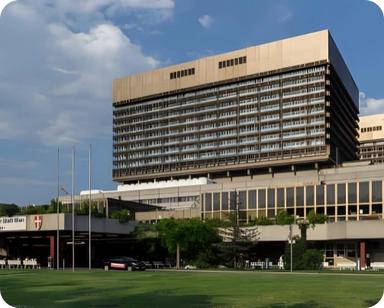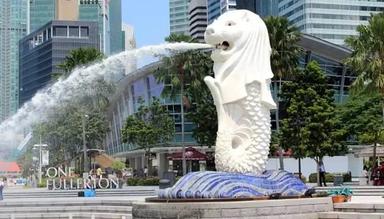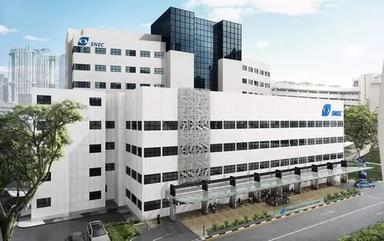
Transformer des vies avec AVR/MVR
L'AVR (remplacement de la valvule aortique) et le MVR (remplacement de la valvule mitrale) sont des interventions chirurgicales qui consistent à remplacer des valvules cardiaques malades ou défectueuses par des valvules artificielles. Ces chirurgies sont des traitements essentiels pour les maladies de la valve telles que la sténose (rétrécissement de la valve qui restreint la circulation sanguine) ou la régurgitation (fuite de la valve qui permet au sang de couler vers l'arrière).
Aspects clés de l'AVR et du MVR:
- But: AVR et MVR sont effectués pour restaurer la circulation sanguine normale, réduire les symptômes, améliorer la qualité de vie et prolonger l'espérance de vie pour les patients souffrant de dommages de valve graves.
- Procédure: Les procédures peuvent être effectuées par chirurgie traditionnelle à cœur ouvert, où le coffre est ouvert pour accéder au cœur, ou par le biais de techniques mini-invasives en utilisant des incisions plus petites ou des méthodes basées sur le cathéter comme TAVR (remplacement de la valve aortique transcatheter) pour AVR. Le choix de la procédure dépend de l'état de santé général du patient, de la gravité de la valvulopathie et d'autres facteurs médicaux.
- Types de soupape: Les soupapes de remplacement utilisées peuvent être mécaniques, fabriquées à partir de matériaux durables nécessitant une thérapie anticoagulation à vie pour prévenir les caillots sanguins, ou biologiques, fabriqués à partir de tissus (porcin, bovin ou humain) qui peuvent s'user avec le temps mais ne nécessitent généralement pas d'anticoagulation à long terme à long terme.
- Récupération: Après la chirurgie, les patients passent généralement plusieurs jours à l'hôpital. La récupération complète d'une chirurgie à cœur ouvert peut prendre plusieurs semaines à des mois, tandis que la récupération d'une chirurgie mini-invasive peut être plus rapide. Les patients subissent une surveillance et des soins de suivi réguliers pour s'assurer que la nouvelle vanne fonctionne correctement et gérer les complications potentielles.
- Résultats: AVR et MVR ont généralement de bons résultats avec des améliorations significatives des symptômes et de la fonction cardiaque. Le type de valve et la méthode de chirurgie affectent la gestion à long terme du patient.
L'AVR et le MVR sont des procédures vitales pour les patients atteints d'une maladie valvulaire importante, leur offrant une chance de mener une vie plus active et plus longue après leur guérison.
4.0
92% Évalué Rapport qualité-prix
Pourquoi nous choisir ?
99%
Taux de réussite
0
AVR/MVR Chirurgiens
0
AVR/MVR
0
Hôpitaux dans le monde entier
0
Vies touchées
Aperçu
L'AVR (remplacement de la valvule aortique) et le MVR (remplacement de la valvule mitrale) sont des interventions chirurgicales qui consistent à remplacer des valvules cardiaques malades ou défectueuses par des valvules artificielles. Ces chirurgies sont des traitements essentiels pour les maladies de la valve telles que la sténose (rétrécissement de la valve qui restreint la circulation sanguine) ou la régurgitation (fuite de la valve qui permet au sang de couler vers l'arrière).
Aspects clés de l'AVR et du MVR:
- But: AVR et MVR sont effectués pour restaurer la circulation sanguine normale, réduire les symptômes, améliorer la qualité de vie et prolonger l'espérance de vie pour les patients souffrant de dommages de valve graves.
- Procédure: Les procédures peuvent être effectuées par chirurgie traditionnelle à cœur ouvert, où le coffre est ouvert pour accéder au cœur, ou par le biais de techniques mini-invasives en utilisant des incisions plus petites ou des méthodes basées sur le cathéter comme TAVR (remplacement de la valve aortique transcatheter) pour AVR. Le choix de la procédure dépend de l'état de santé général du patient, de la gravité de la valvulopathie et d'autres facteurs médicaux.
- Types de soupape: Les soupapes de remplacement utilisées peuvent être mécaniques, fabriquées à partir de matériaux durables nécessitant une thérapie anticoagulation à vie pour prévenir les caillots sanguins, ou biologiques, fabriqués à partir de tissus (porcin, bovin ou humain) qui peuvent s'user avec le temps mais ne nécessitent généralement pas d'anticoagulation à long terme à long terme.
- Récupération: Après la chirurgie, les patients passent généralement plusieurs jours à l'hôpital. La récupération complète d'une chirurgie à cœur ouvert peut prendre plusieurs semaines à des mois, tandis que la récupération d'une chirurgie mini-invasive peut être plus rapide. Les patients subissent une surveillance et des soins de suivi réguliers pour s'assurer que la nouvelle vanne fonctionne correctement et gérer les complications potentielles.
- Résultats: AVR et MVR ont généralement de bons résultats avec des améliorations significatives des symptômes et de la fonction cardiaque. Le type de valve et la méthode de chirurgie affectent la gestion à long terme du patient.
L'AVR et le MVR sont des procédures vitales pour les patients atteints d'une maladie valvulaire importante, leur offrant une chance de mener une vie plus active et plus longue après leur guérison.
FAQs
Forfaits à partir de
Besoin d'aide pour choisir le bon forfait pour votre voyage médical ?
Vos données de santé sont protégées avec nous


